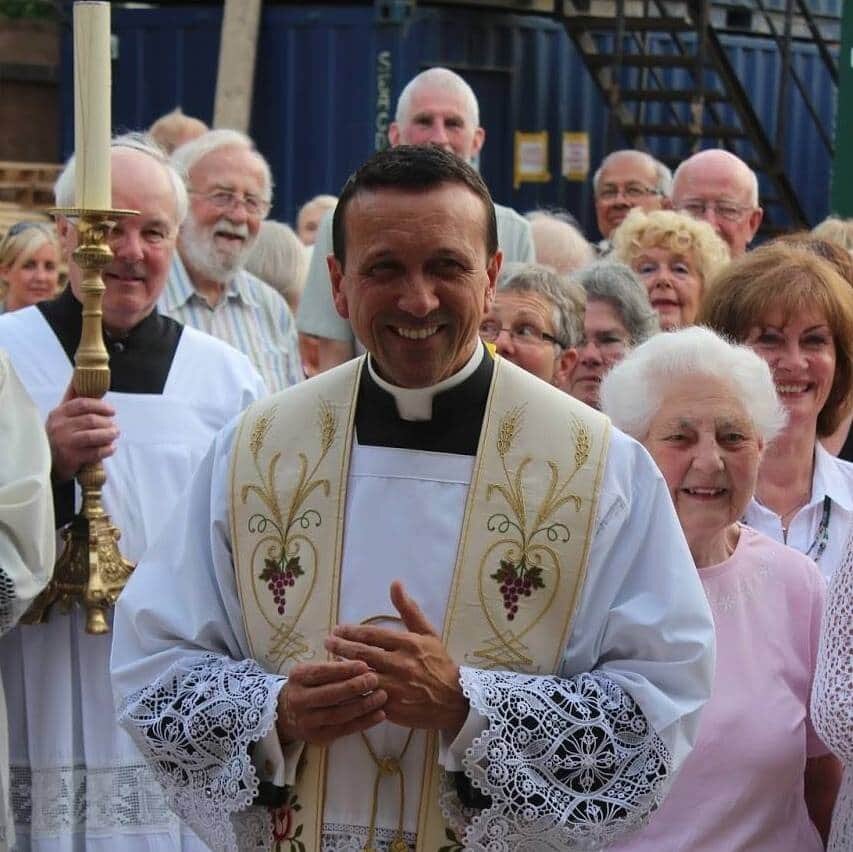Dear friends in Christ
Jesus was teaching in Judaea on the banks of the Jordan to a great multitude. They were listening closely to his every word. Then they asked Jesus to pass judgment on the Mosaic Law. Is it lawful for a man to divorce his wife? Moses had permitted divorce because of the hardness of heart of the chosen people. The condition of woman was at that time ignominious. She could be put aside by her husband for virtually any reason. Moses required that the husband give the wife a bill of divorce so that she might be free to marry again. The Prophets spoke out against divorce when they came to the Promised Land.
Jesus takes this opportunity to affirm the indissolubility of marriage, as God originally intended at Creation. He quotes the words of Genesis which we find in today's First Reading. But from the beginning of creation, God made them male and female. For this reason a man shall leave his father and mother and be joined to his wife, and the two shall become one. So they are no longer two but one. What therefore God has joined together, let no man put asunder. The Lord declares that the unity and indissolubility of marriage had been established from the beginning. This teaching was so surprising to the disciples that once they had left the crowd they asked Jesus to explain it again. And he said to them: Whoever divorces his wife and marries another, commits adultery against her; and if she divorces her husband and marries another, she commits adultery. It would be hard to express the matter more clearly. His words were of an unmistakable clarity.
Pope Saint John Paul II in his monumental Letter on Family and Marriage of 1981 wrote: It is a fundamental duty of the Church to reaffirm strongly ... the doctrine of the indissolubility of marriage. To all those who, in our times, consider it too difficult, or indeed impossible, to be bound to one person for the whole of life, and to those caught up in a culture that rejects the indissolubility of marriage and openly mocks the commitment of spouses to fidelity, it is necessary to reconfirm the good news of the definitive nature of that conjugal love that has in Christ the foundation and strength (Eph 5:25). Being rooted in the personal and total self-giving of the couple, and being required by the good of the children, the indissolubility of marriage finds its ultimate truth in the plan that God has manifested in his revelation: He wills and He communicates the indissolubility of marriage as a fruit, a sign and a requirement of the absolutely faithful love that God has for man and that the Lord Jesus has for the Church. This bond can be broken only by death. It is an image of the bond between Christ and his Church, His Mystical Body.
Marriage, and the resulting family, is the school where the virtues are taught to us. Let us remember to pray often for our families; for those preparing for Marriage; for those struggling with their vocation, that together we can live and build-up the Body of Christ on earth.
In this month of the Holy Rosary, perhaps many of us can rediscover the simplicity of this prayer which binds us together as families and individuals. Pope Francis has asked that this Monday—feast of the Holy Rosary—be observed by Catholics as a day of prayer and fasting for peace, especially in the Middle East, at this time.
May Jesus Christ bless you and Mary intercede for us!
Msgr Kevin Hale

